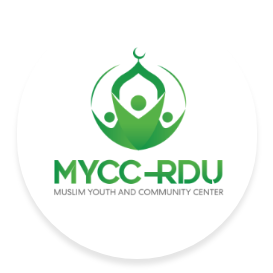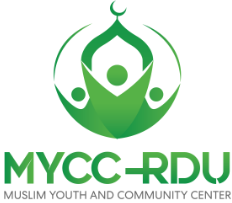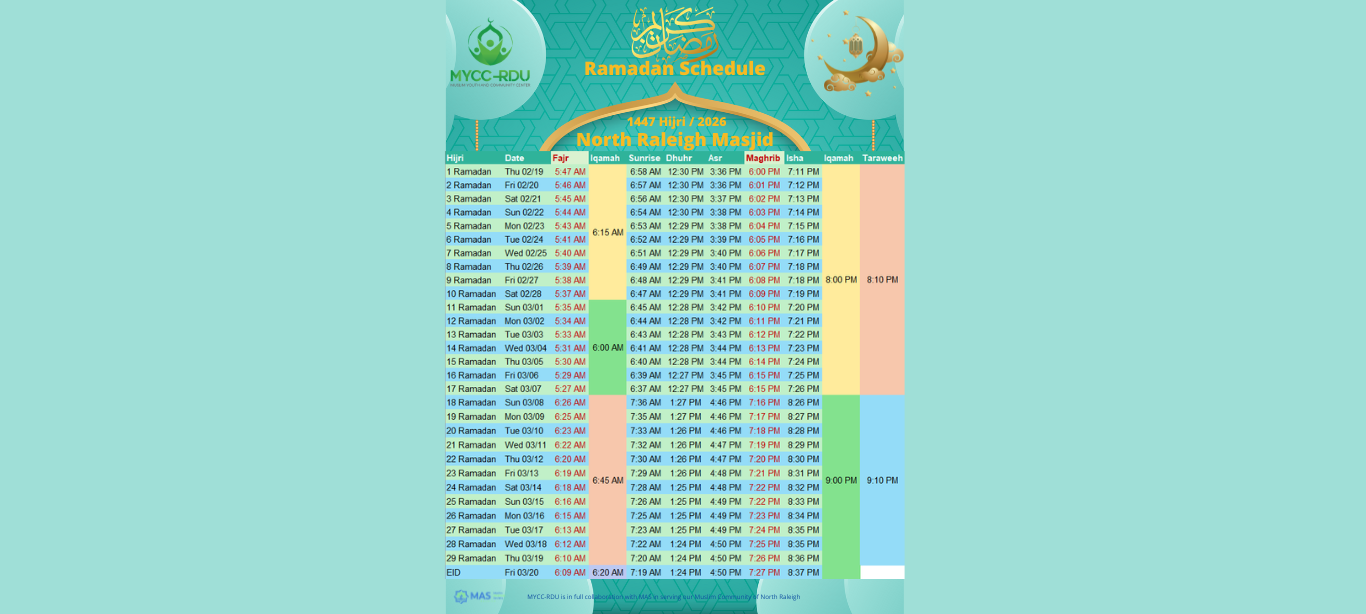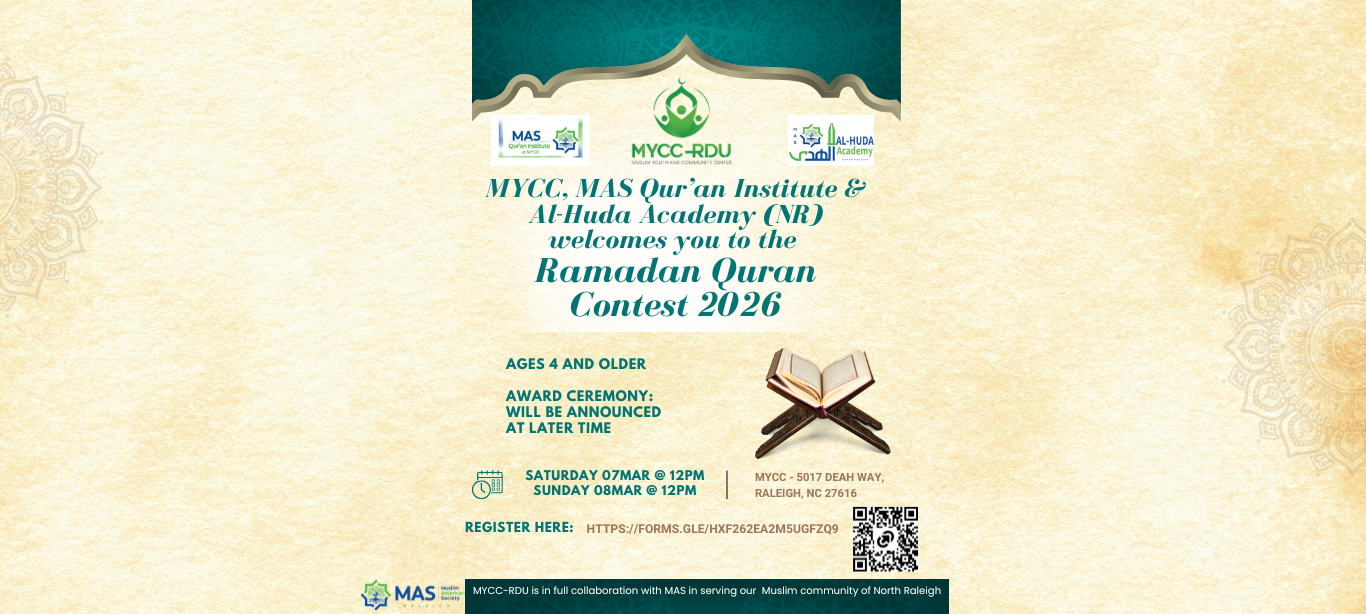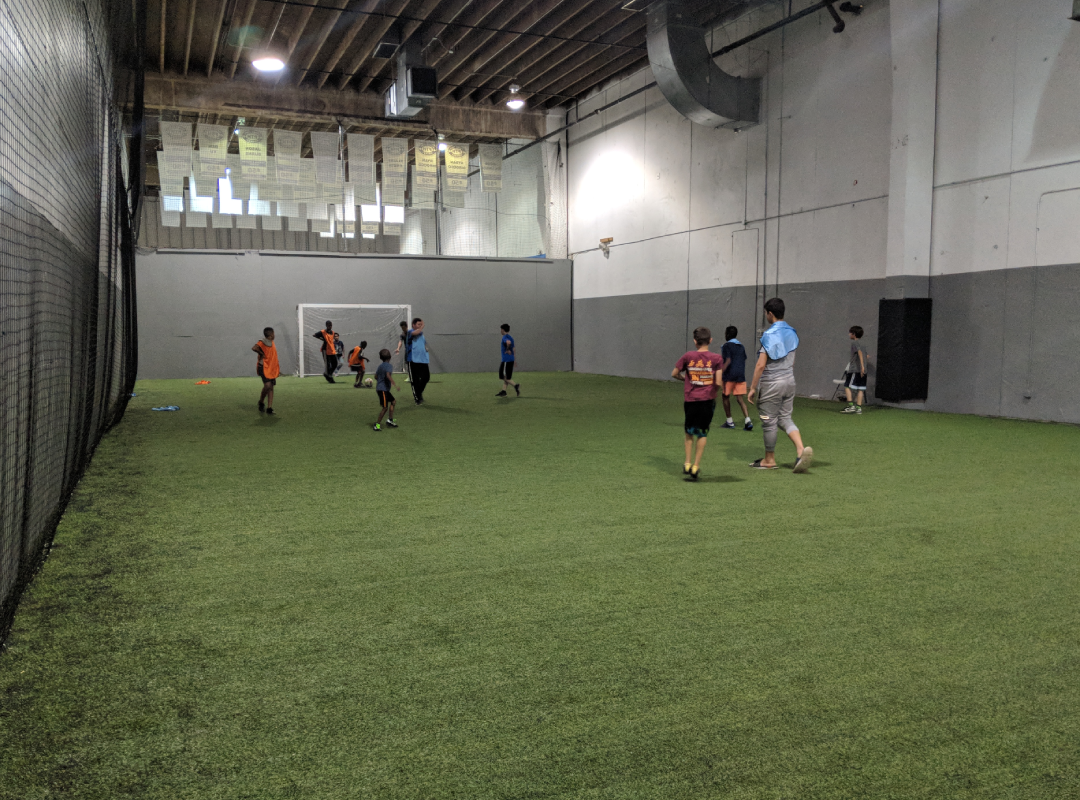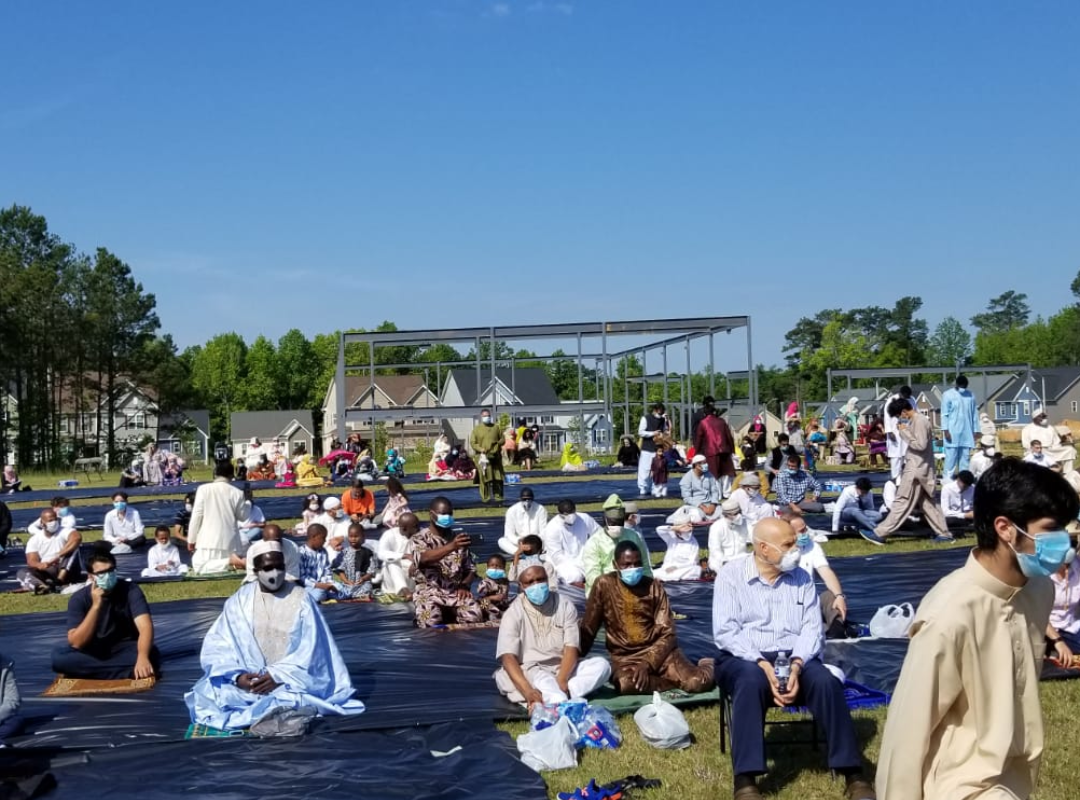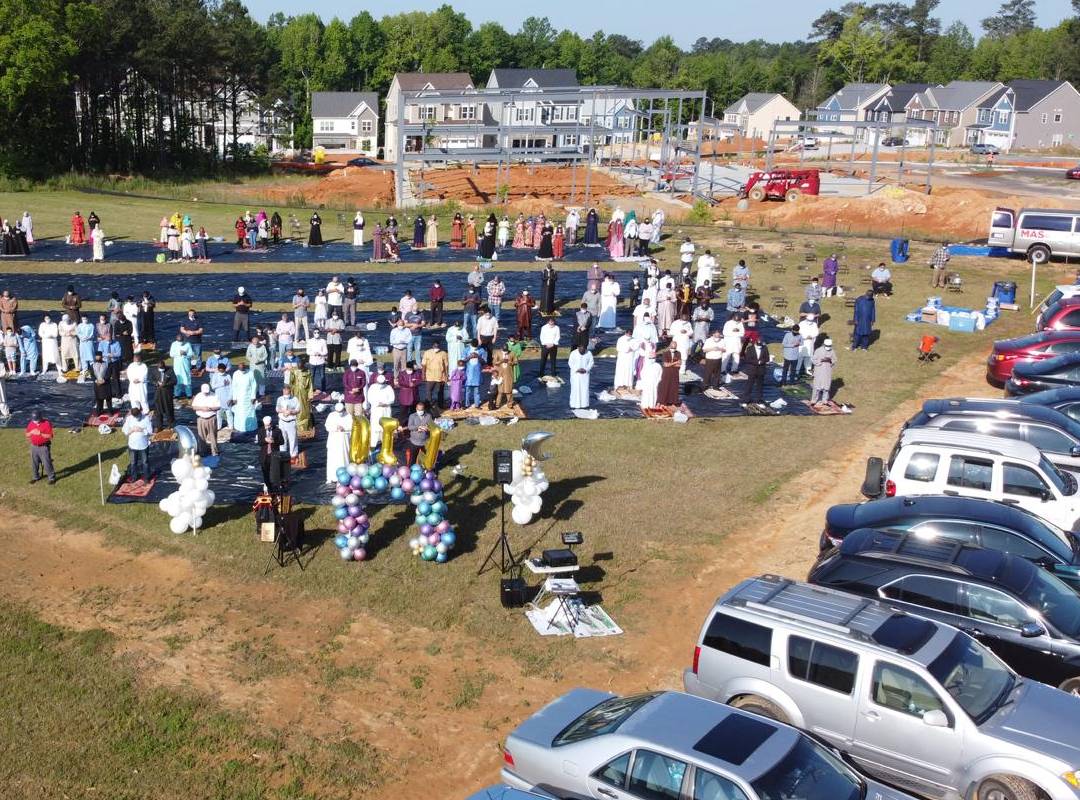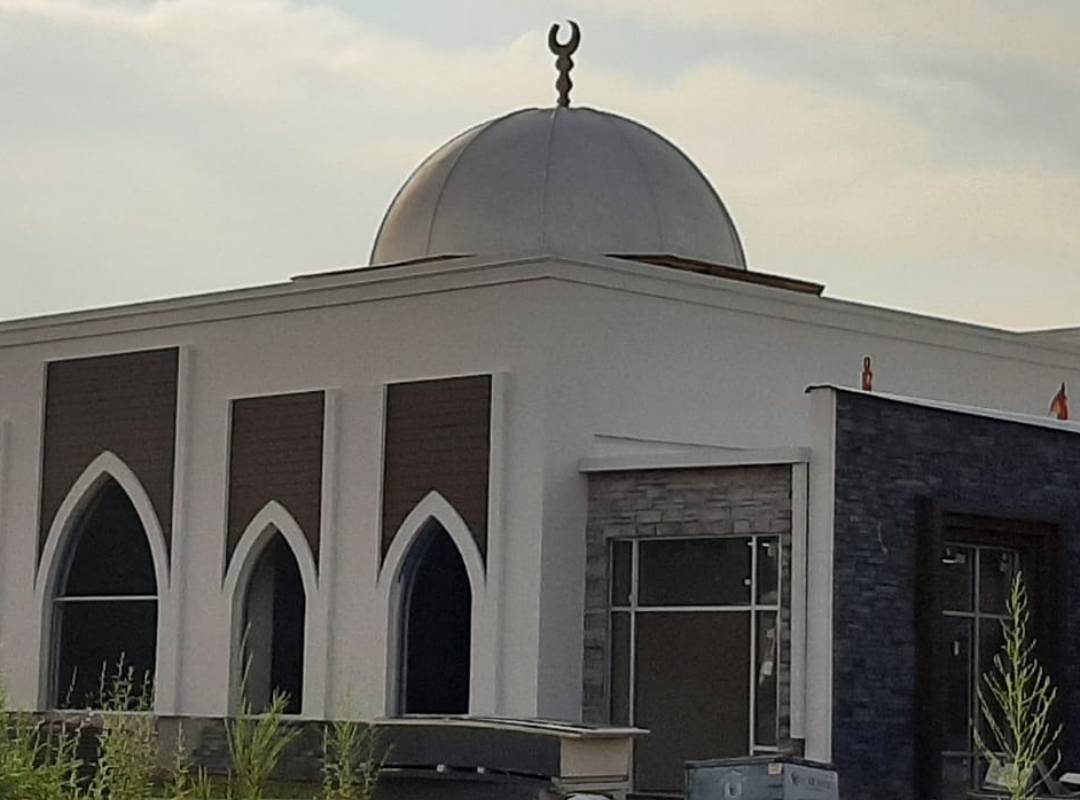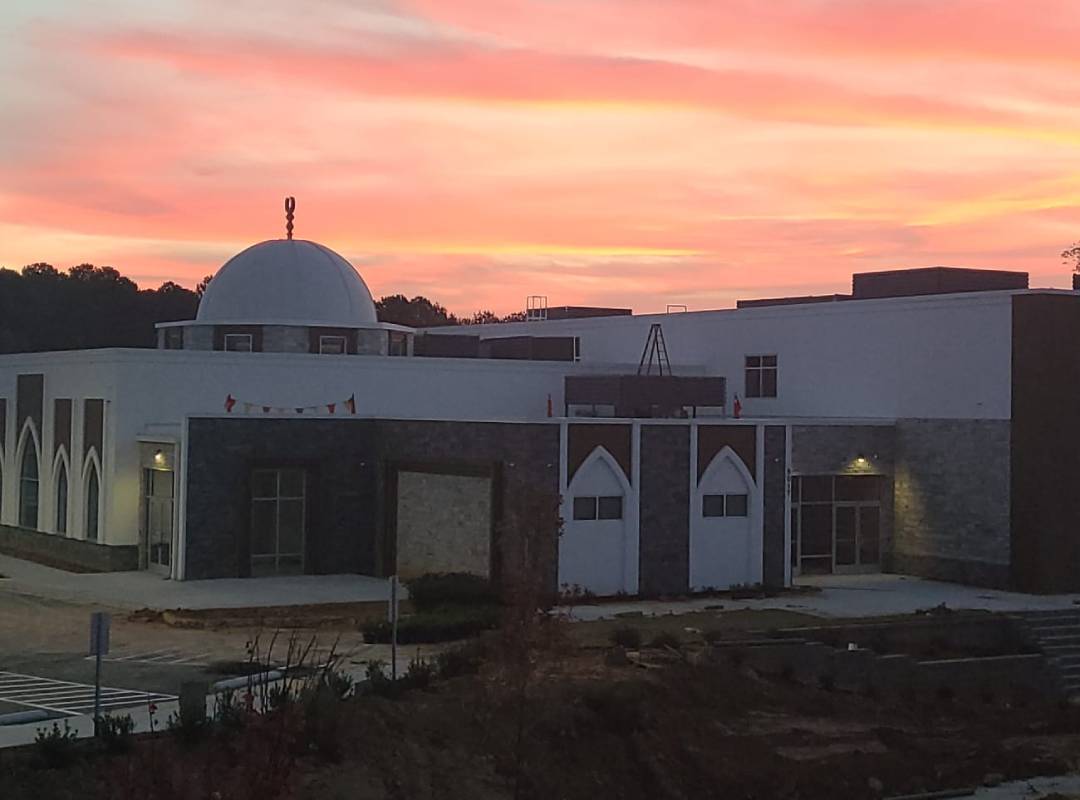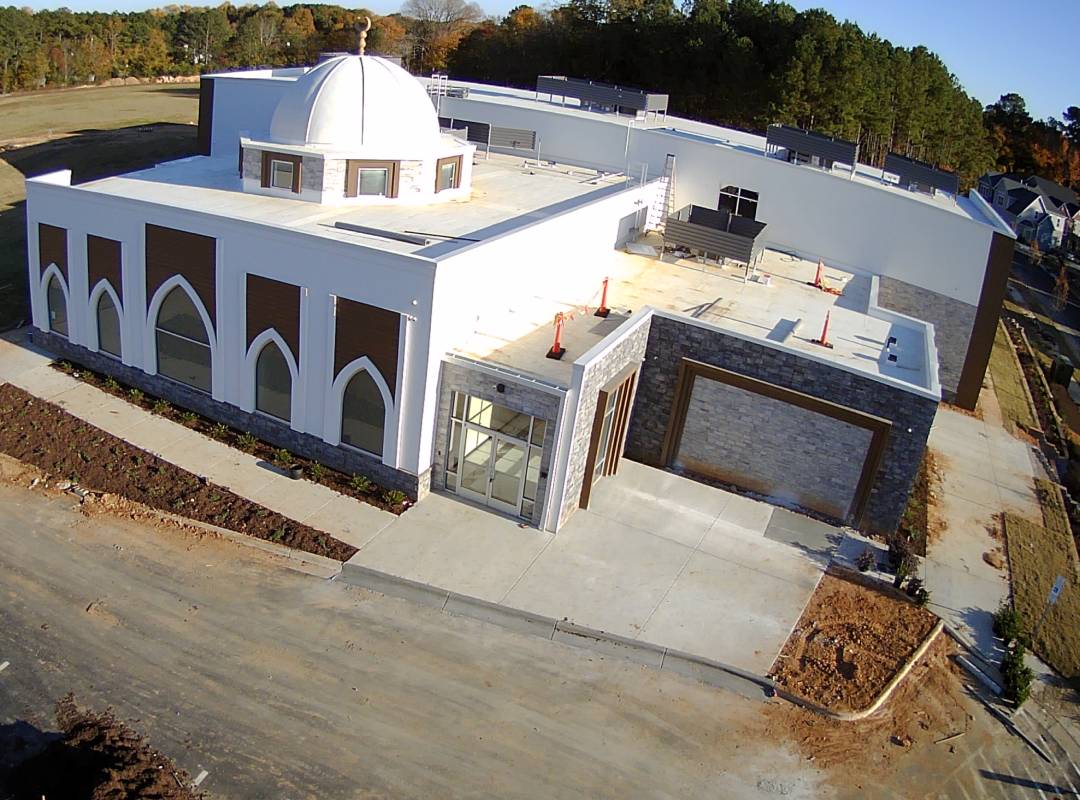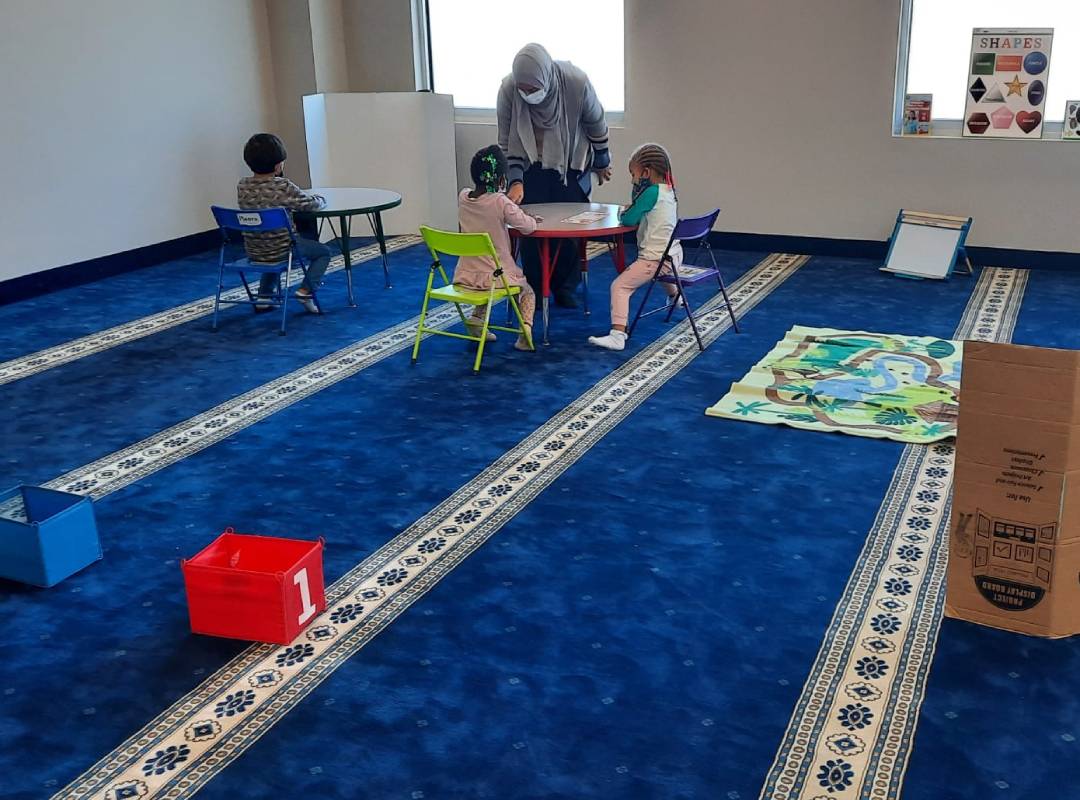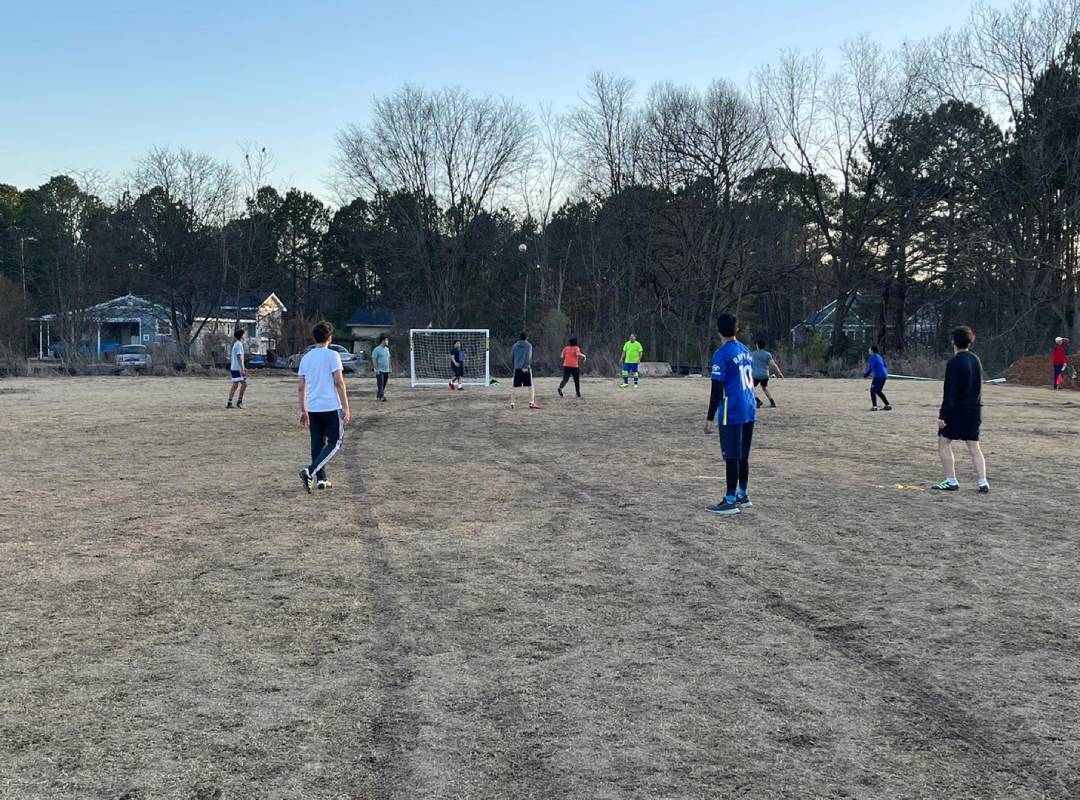Prayer Times
| ADHAAN | IQAMAH | |
|---|---|---|
 Fajr
Fajr |
05:30 AM | 06:00 AM |
 Duhr
Duhr |
12:28 PM | 01:35 PM |
 Asr
Asr |
03:44 PM | 04:00 PM |
 Maghrib
Maghrib |
06:14 PM | 06:24 PM |
 Isha
Isha |
07:24 PM | 08:00 PM |
Jumu’ah Times
| 12:15 PM | |
| 02/27-Speaker: Eslam Said - Fundraiser for Al-Huda Academy | |
| 01:30 PM | |
| 02/27-Speaker: Dr. Hamdy Radwan - Fundraiser for Al-Huda Academy | |
| 02:30 PM | |
| 02/27-Speaker: Dr. Hamdy Radwan - Fundraiser for Al-Huda Academy | |
Upcoming Events
Events not found!
Few Words About MYCC-RDU
MYCC-RDU is an investment in our families and future generations. We plan to establish a place for our community to gather and our youth to have fun in an Islamic environment. The facility will provide a prayer-hall, activity center, game room and outdoor activities.
Our Center is one of a kind in the North Carolina
Food
Pantry
Pantry
Charity
Events
Help
for Needy
for Needy
Afternoon
Quran School
Sunday
School
Sports
Events
Our Services

Food Pantry
Insha’Allah, we will be having monthly food pantry distribution on 3rd Saturday of every month from 11:00AM – 1:00PM.
Marriage Service
We can provide Nikah service to you if you have marriage license from the county.
Counseling Service
Under Construction
Facility Reservation
Under Construction
